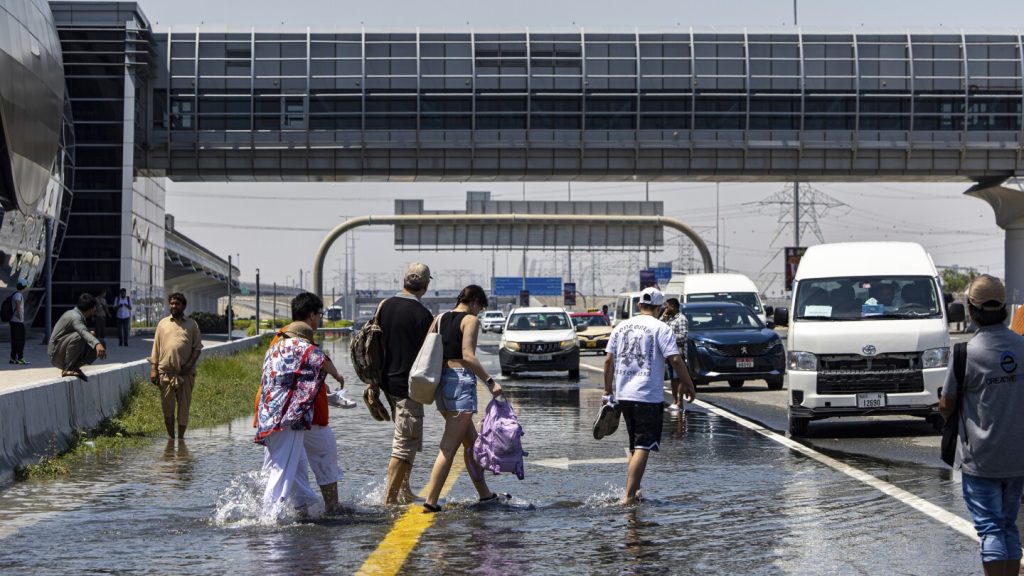A recent deadly deluge that flooded Dubai and other parts of the Persian Gulf has raised concerns about the role of climate change in worsening extreme weather events. Scientists at World Weather Attribution conducted a flash study and found that between 10% and 40% more rain fell in just one day than would have in a world without the 1.2 degrees Celsius warming caused by greenhouse gas emissions. This increased rainfall led to significant flooding and fatalities in the region.
While the study did not have enough data for computer simulations to definitively link the event to climate change, analysis of past observations indicated a clear increase in rainfall amounts due to the warming caused by human activities. The lead scientist of the study, Friederike Otto, noted that the physics of increased moisture in warmer air supported the hypothesis that climate change played a significant role in the extreme rainfall event.
El Nino, a natural climate phenomenon, was identified as a contributing factor to the heavy downpours in the Gulf region. Past deluges during El Nino events appear to be trending heavier, in line with scientific predictions of increased extreme weather events in a warming world. The study suggested that the combination of El Nino and human-caused climate change amplified the intensity of the recent flooding.
The report could not provide a precise estimate of the likelihood of similar downpours in the future due to climate change, but the lead author indicated that such events are likely three times more probable now compared to pre-industrial times. The study also refuted claims that cloud seeding in the region influenced the amount of rainfall, emphasizing that the storm clouds were not artificially modified. The scientific consensus pointed towards greenhouse gas emissions as a significant factor in the extreme weather event.
Outside experts praised the study for its comprehensive assessment of the role of climate change in the flooding event. Climate scientists highlighted the increasing frequency of extreme rain and flooding events worldwide as evidence of the impact of climate warming. The study’s cautious approach and thorough analysis were commended for providing valuable insights into the connections between climate change and severe weather events.
In conclusion, the recent flooding in Dubai and the Persian Gulf serves as a stark reminder of the increasing risks posed by climate change. While the definitive attribution of extreme weather events to climate change can be complex, the study underscores the need for urgent action to mitigate greenhouse gas emissions and adapt to a changing climate. The global community must work together to address the challenges posed by climate change and minimize the impact on vulnerable regions like the Persian Gulf.


